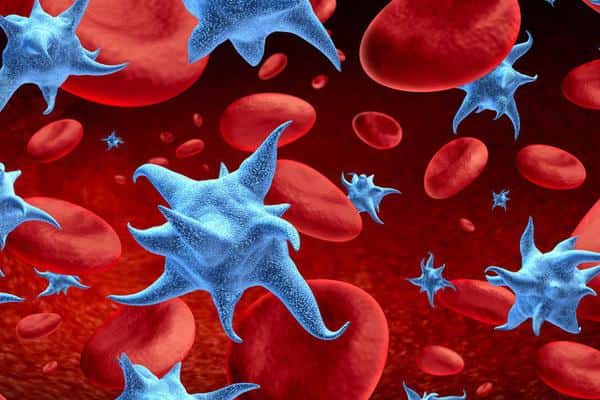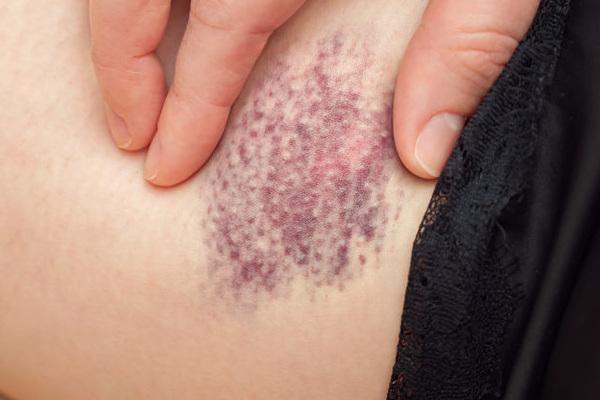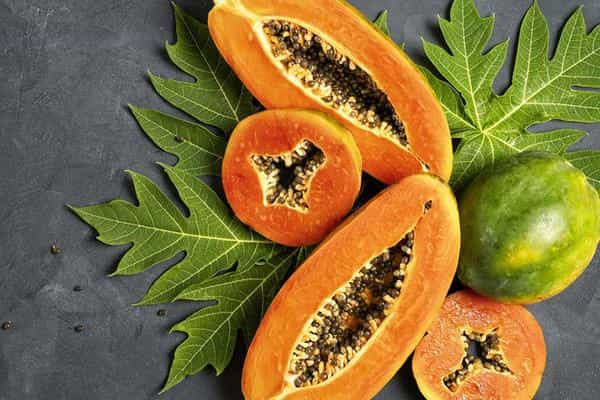Зміст
What are platelets, and how can they be low?

Platelets are the smallest elements of blood cells that are formed in the bone marrow. Their function is to participate in the formation of a clot at the site of a damaged blood vessel and in the process of blood clotting. Therefore, the disorders associated with them affect the entire body. Too high a platelet count increases the risk of blood clots, and too low a platelet count leads to re-bleeding that is difficult to stop.
Thrombocytopenia is a symptom of a decrease in the number of platelets below the norm, which is 150-400 thousand per microliter. This may be due to an impaired platelet formation, too rapid platelet destruction, or a combination of the two. Cancer (leukemia, lymphoma, and bone marrow fibrosis), bacterial and viral infections, autoimmune diseases, megaloblastic anemia, or an enlarged spleen can cause thrombocytopenia. Platelet production can also be disrupted by taking certain medications such as heparin, quinine, morphine, non-steroidal anti-inflammatory drugs, and sulfonamides (antibiotics). Various insecticides and toxins,
Thrombocytopenia symptoms

Low platelet counts may be asymptomatic at first, but can significantly impair quality of life. Symptoms usually only appear when the platelet count falls below 30,000 / ml. Typical thrombocytopenia are bleeding from the skin or mucous membranes, such as from the nose or gums, unusually prolonged bleeding from trauma, blood in the urine and stools, and profuse and prolonged periods. There is also a tendency to bruising and bruising, as well as minor subcutaneous bleeding in the form of small rashes.
How to increase blood production naturally?
If you suspect thrombocytopenia, you should consult a doctor who diagnoses the condition based on tests, determines the root cause and decides on treatment. In mild cases, this is not always necessary, but in some cases, a blood transfusion is necessary. If certain substances (such as alcohol or medication) or poor dietary habits cause your low platelet count, you can follow these guidelines to help resolve the problem. Then you should stop drinking alcohol and limit your pain relievers. There are also natural ways to increase platelet production.
Replenish Vitamin B12 Deficiency
Vitamin B12 has an extremely beneficial effect on the circulatory system – it is involved in the production of red blood cells, prevents anemia and ensures the synthesis of DNA in every cell, including the bone marrow and all types of blood cells. Its deficiency can lead to megaloblastic anemia associated with a decrease in platelet count. Therefore, it is worth checking your vitamin B12 level and supplementing it with supplements or diet to increase platelet levels. Vitamin B12 is found almost exclusively in animal products. We can find it in meats (especially beef, pork), organ meats, eggs, and fish, milk, and milk products.
Replenish folate deficiency
Folic acid (vitamin B9) is also essential for proper production and growth of blood cells. Therefore, insufficient intake of it can contribute to thrombocytopenia. Folic acid deficiency can also cause pregnancy complications, heart problems, and fatigue. High levels are found in spinach, asparagus, beets, avocados, beans, lentils, lettuce, cabbage, and broccoli. It also contains yeast, bananas, oranges, egg yolks, and liver.
Papaya leaves

It is worth knowing that papaya leaves also have a positive effect on platelet count. Scientific research confirms that they increase platelet levels and strengthen the immune system. They can be used as an infusion or added to smoothies.
Buy foods rich in vitamins D and K
Vitamins D and K have a positive effect on platelet production. The first of them improves the hematopoietic function of stem cells, bone marrow cells involved in the production of red and white blood cells, and platelets.
Vitamin D is best obtained from the sun, but it is difficult in autumn and winter, so supplementation is recommended. Foods that contain it include oily fish and eggs. Vitamin K, in turn, improves blood clotting, so it can also help increase platelet count. Its sources are green vegetables: kale, parsley, spinach, lettuce, kale and arugula.








